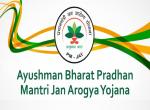The justice system in India is passing through an extremely difficult period, for which there are a number of reasons. Let us start with the basics, that is, the separation of powers. In this a very special position is given to the Judiciary which makes it totally independent of the Executive. This is most praiseworthy, but it would be futile to deny that the system is under stress. As the Executive fails to perform its functions of governing, as people develop a feeling that they cannot expect fairness, impartiality and efficiency from the Executive, recourse to the courts has increased substantially and in matters in which the Executive should have taken a decision the Judiciary is being forced to intervene so that people receive their due, especially in terms of delivery of services. Because it is impossible to maintain an absolutely fine-tuned balance when one constituent of the State is forced to order another, equal constituent to act in a particular way or desist from acting in another way, there are bound to be complaints that the Judiciary is intervening in executive matters. Looked at from the citizens’ point of view this is just fine because he is interested in his legitimate work being done. That, however, is not how the Executive views it. There have also been instances of clashes between the Judiciary and the Legislature, but fortunately the stand-off has never reached the point of irreversible crisis. However, the Executive must begin to govern and its lowliest functionary must being to do his duty as mandated by law, rules or executive order. If that happens people will find it unnecessary go to the Judiciary for remedy and courts can then go back to their main function of deciding issues between adversaries.
One of the areas of conflict is in the appointment of judges of the Supreme Court and the High Courts. Article 124 of the Constitution states how a judge of the Supreme Court may be appointed. Article 217 provides for the appointment of High Court judges. The operative part of Article 124 (2) reads, “Every judge of the Supreme Court shall be appointed by the President by warrant under his hand and seal after consultation with such of the judges of the Supreme Court and of the High Courts in States as the President may deem necessary for the purpose and shall hold office until he attains the age of sixty-five : Provided that in the case of appointment of a judge other than the Chief Justice, the Chief Justice of India shall always be consulted”. Under Article 217 for the appointment of a judge of a High Court the President is the appointing authority and he is required to decide on such appointment in consultation with the Chief Justice of India, Governor of the State and, in the case of appointment of a judge other than the Chief Justice, the Chief Justice of the High Court concerned”. The Supreme Court has ruled that consultation with the Chief Justice of India establishes the primacy of the Chief Justice in determining who shall or shall not be appointed a judge of the Supreme Court or a High Court. The Supreme Court has further ordered that it is a collegium of judges, to be selected by the Chief Justice which will help the Chief Justice to determine what advice should be rendered to the President regarding the appointment of a judge.
I have serious objection to the concept of a collegium of judges which limits the power of the President to consult such judges of the Supreme Court and the High Courts as he deems necessary, which is what Article 124 (2) states. I do not think that the Supreme Court can thus limit the authority of the President regarding consultation which vests in him through the Constitution, though the Chief Justice of India would be free to set up a collegium to advise him on the recommendations to be made on consultation. The question still remains about how a conflict will be resolved where the collegium advises the Chief Justice in a particular way and the judges whom the President consults give some other advice. The third player would be the Council of Ministers, whom the President is bound to consult before taking a decision because under the Constitution he is bound by the advice of the Council. This would apply to the Governor of a State also who, when consulted by the President about appointment of a High Court judge, would naturally have to abide by the advice given to him by his Council. In other words, the present provisions of the Constitution and their interpretation by the Supreme Court do leave open the gates of disagreement and even conflict because whereas the President may not appoint a judge whom the Chief Justice of India and the collegium have found unfit, he need not appoint a person recommended by the Chief Justice. In fact many vacancies in the High Courts and the Supreme Court have not been filled on account of such conflict.
Government has been trying to set up a National Judicial Commission, to be headed by the Chief Justice of India and with adequate representation of the Supreme Court and High Courts. The Commission, as envisaged, would have the Law Minister, the Leader of the Opposition of one of the two Houses of Parliament and an eminent jurist nominated by the President as members. Justice J.S. Verma, Justice V.N. Khare, Justice V.R. Krishna Iyer and Justice M.N. Venkatachalliah are all opposed to the collegium system. Perhaps the issue could be resolved if the proposed National Judicial Commission could have a majority of judicial members, with the Chief Justice having a veto power and if the eminent jurist is nominated by the Chief Justice of India rather than the President. Suitable constitutional and legal arrangement could be made for the advice of the National Judicial Commission being final, with neither the President nor the Prime Minister being authorised to overrule it. Without bringing the Executive into the process for the appointment of judges of the Supreme Court and High Courts, such an arrangement would widen the scope of the required consultation with the Chief Justice and by bringing the government, the opposition and the Bar on board through an eminent jurist, the system of appointment of judges could be made more broad based and more credible.
An independent judiciary is a sine qua non of a true democracy. However, the only system of governance in which authority does not go hand in hand with accountability is a dictatorship of the type established by Hitler or Stalin. This means that the more independent the judiciary the more should it be accountable. Accountability which does not lead to penalty for failure to discharge accountability satisfactorily is no accountability. Under Article 227 courts and tribunals located within the jurisdiction of a High Court work under the superintendence of the High Court and in exercise of the power of superintendence the High Court can call the court or tribunal to account. Under Chapter 6 of Part VI of the Constitution the District and Sessions Courts and the Courts of Magistrates and Civil Judges are termed as subordinate courts and under Article 235 control over subordinate courts vests fully in the High Courts. The Constitution, therefore, provides for High Courts to decide how subordinate courts will function, to prescribe measures to ensure accountability and to punish for failure to render account, in terms of finance, efficiency, judicial competence, etc. But what about the High Courts and the Supreme Court? Their judicial pronouncements are open to appeal, revision and review, but administrative and personal conduct are not subject to the superintendence, supervision or control of any judicial authority. If a judge does little or no work, is not regular in attendance, delays judicial pronouncements, does not promote efficient judicial process in his own court or in subordinate courts the maximum that can happen is that under Article 222, on the advice of the Chief Justice of India, the President may transfer a judge from one High Court to another. If there is serious misconduct the procedure laid down in Article 124 (4), it would be applicable. For High Court judges Article 218 would apply, which means that a Supreme Court or High Court judge can only be removed through impeachment proceedings. There is no other penalty prescribed, but as the Justice Ramaswamy case has proved, if equations in Parliament are such that the necessary majority cannot be mustered, a judge found guilty of misconduct by a tribunal constituted under Article 124 (4 and (5) the judge may still escape removal. Carried one step further, if a judge is found guilty in a criminal trial, convicted and given a jail sentence, the impeachment proceedings can still fail and the convict would continue to be a judge of a High Court or the Supreme Court. This may happen in the case of a lady judge of the Punjab and Haryana High Court who has been accused of taking a bribe. Government, Parliament and the Supreme Court must realise that what could never be dreamt of when the Constitution was drafted, that is, a judge of a High Court or Supreme Court committing a criminal misdemeanor, can no longer be ignored and, therefore, we must have a constitutional provision whereby in such cases, while taking great care to ensure that the independence of the judiciary is not thereby compromised, such a judge can be made to demit office.
The major problem with our subordinate courts from District and Sessions Courts down to a Magistrate First Class cum Civil Judge Class Two is that cases drag on for years. Formerly civil litigations were considered to be very lengthy and time consuming, but now unfortunately even the criminal justice system has become subject to inordinate delay. I have perhaps quoted this case else where, but it bears repetition. In Mach 1983 shortly before I left the Service we trapped a lady who was trying to bribe a Deputy Secretary. He had already reported that such an attempt was being made and we arranged a trap, catching the lady red handed. My evidence was proforma, but necessary because the bribe was being offered for expeditious processing of a case in which the accused person’s application to me had been forwarded by me to the Deputy Secretary for examination. It took eleven years for my evidence to be recorded because every time I went for a hearing the accused, by absence, by subterfuge, by downright lies was able to obtain adjournments. The case was finally decided fifteen years after the event. What is the deterrent effect of such proceedings? How can witnesses be expected to remember an event which happened several years earlier and give testimony which could withstand cross examination, the purpose of which is to discredit the witness? This was a simple case with only three or four witnesses, but imagine what happens in a serious case in which a heinous offence has been committed and there are a large number of witnesses. No wonder we have such a miserable record of convictions.
I have been trying to understand why cases are delayed. I am not even attempting to look at civil cases because that will require several volumes. In a criminal trial the first delay occurs at the stage of investigation. The available clues may be either so few as to be almost nonexistent, witnesses may not be available, the forensic tests may be inconclusive, the investigating officer may be overburdened and can give only limited time to a particular offence, the accused and the witnesses or even the complainant may come to some compromise or there could be sheer inefficiency. This is where superior police officers have a major role to play to ensure that investigation is consistent, sustained and done with intelligence. Forensic and other support must be made available freely to the investigating team. The legal niceties of investigation must also be taken care of. The submission of the challan must be accompanied by full documentation so that the charge-sheet is complete in itself. This has to be followed up by proper representation of the prosecution in court, with the public prosecutor and his assistants applying due diligence to the case. If the public prosecutor is wide awake and proactive many of the delays in court can be avoided.
One reason for delay is in the serving of process. The court moharrir, who would generally be from the police, or the reader of the magistrate or judge, would be responsible for issue of process which, in criminal cases, would generally be served by the police. The arrangement is not satisfactory and most courts report that service of process is tardy and very often summons and warrants are just not served in collusion with the accused or the witnesses. Surely, with modern means of communications, with speed post, courier service, SMS texting and the internet the High Courts can work out a system whereby service of process becomes efficient and cannot be used as an excuse for delay in court proceedings. Our courts cannot function in the eighteenth century when the twenty-first century gives such exciting and innovative means of communication, or are they waiting for that happy day when science evolves a means of apparatus-less communication of thought process whereby what the judge thinks is communicated to the witness or accused by a para-psychic process? Coming to the trial proper, defence counsels are prone to pleading for adjournments, especially in those cases where the defence case is weak. Adjournments must be avoided because whereas an adjournment which is unavoidable is given, in most cases adjournment is denied. It is for learned counsel to adjust their cause list in such a way that appearance in one court cannot be offered as an excuse for nonappearance in another court. There is no reason for a judge to give an adjournment only for the sake of convenience of counsel. Every defence counsel is an officer of the court and it is his duty to assist the court in speedy disposal of a case. A counsel who acts otherwise fails in his duty and should be treated as such.
I have talked to a number of judges and magistrates about why they are not strict in the matter of adjournment. Under Article 21 of the Constitution every person, including one accused of a heinous offence, is still entitled to be tried by due process before being deprived of his life or personal liberty. Under Article 22 a person who is arrested and detained in custody has the right to be informed of the grounds for arrest, he has the right to consult and be defended by a legal practitioner and he cannot be detained in police custody beyond twenty-four hours of arrest without the orders of a magistrate. Under Article 39 (A) every citizen is entitled to equal justice. This is enforceable by the provisions of Articles 139 and 226 which confer writ jurisdiction on the Supreme Court and the High Courts. The Code of Criminal Procedure prescribes the process of trial in criminal cases. Chapters XVI and XIX of Cr.P.C. state how proceedings shall be conducted before a Magistrate and Chapter XVIII does the same for trial before a court of session. Under sections 231 and 233 Cr.P.C. an accused person has the right to cross examine the prosecution witnesses and to enter upon his own defence and adduce evidence in this behalf. Suppose an accused person deliberately delays the taking of evidence for the prosecution and indefinitely defers his own defence. Should the court indulge him and go on giving adjournments indefinitely, as happened in the bribery case to which I have earlier referred? Under Indian law a person is deemed to be innocent till proved guilty but there is no provision of law which says that an accused and his counsel can go on creating obstruction so that the trial is indefinitely delayed. In other words, an opportunity, a manifestly fair opportunity, must be given to the accused on trial to present his case, but when the accused tries to indefinitely delay the matter the court need not succumb. Under section 309 Cr.P.C. the provision is, “In every enquiry or trial the proceedings shall be held as expeditiously as possible and, in particular, when the examination of witnesses has once begun, the same shall be continued from day-to-day until all the witnesses in attendance have been examined, unless the court finds the adjournment of the same beyond the following day to be necessary for reasons to be recorded”. The proviso to this section states that any trial relating to an offence under section 376 and 376(D) of IPC (sexual offence amounting to rape) must be completed within a period of two months from the date of commencement of the examination of witnesses. The scheme of Cr.P.C. is very clear, the accused is entitled to a fair trial, but he is not thereby entitled to indefinite delay.
I have spoken to some judges about why they so readily give adjournments. Even the most conscientious of them state that if they do not give an adjournment there are many defence lawyers who indulge in making complaints against the judge and, by and large, the High Courts tend to be more sympathetic to defence counsel than to their own judges. Rather than face such complaints many judges take the easy way out and adjourn the case. One of the things which many judges have forgotten is that bail is also a form of custody in which instead of physically holding the accused the court permits enlargement on bail, whereby surety of appearance is substituted for physical custody. If the accused person deliberately delays proceedings by non appearance or such other tactics it would be legitimate for the court to hold the person in physical custody and to proceed with the case on a day-to-day basis. The Supreme Court and the High Courts must try and move the courts in this direction. Greater adoption of evidence through video conferencing and other means of electronic recording of evidence would also help in expediting cases.
There are some recent developments which are causing me worry. The first is that recent rape cases have certainly shaken the nation, with the Chief Justice of India going as far as to say that he would have personally liked to participate in the public protest. Perhaps he was ill advised to make this statement because in a way he thus pre judges even the specific case under mention, which means that no trial court in India would hereafter readily acquit a person in such matters unless no case at all is made out and this could lead to mistrial of rape cases and denial of justice to the accused persons. We have seen a whole spate of very speedy trials, some lasting only for ten days, in which the accused has been sentenced to death. Murder, whether or not accompanied by rape, is the ultimate crime because it irreversibly deprives a person of his life. The accused also faces possible judicial termination of his life at the end of the trial and, therefore, courts have to be extra careful to ensure that the accused has full and fair opportunity to represent his or her case and that there is no miscarriage of justice through haste. The Supreme Court and the High Courts for years have ruled that there should be extreme caution in awarding the death penalty and that, too, only in the rarest of rare cases. In sharp contrast in at least half a dozen cases in the last two or three months rapists have been awarded the death penalty after trials which smack of the summary. The judiciary cannot swing between two extremes because our politicians, civil servants and the so-called civil society are already doing this. Certainly the judiciary should enforce the law with great strictness and there should be no misplaced and pseudo philanthropic attitude towards crime. At the time same justice has to be done because two principles of Anglo Saxon Jurisprudence that we follow are :- (1) An accused is presumed to be innocent till proved guilty, with the burden of proof of guilt resting on the prosecution. (2) It is better that a hundred guilty people go free rather than that one innocent person be punished. It is for the judiciary to ensure that the balance is maintained, the innocent are protected and at the same time the guilty are brought to justice in the shortest possible time.
Published Date: 21st March 2013









Post new comment